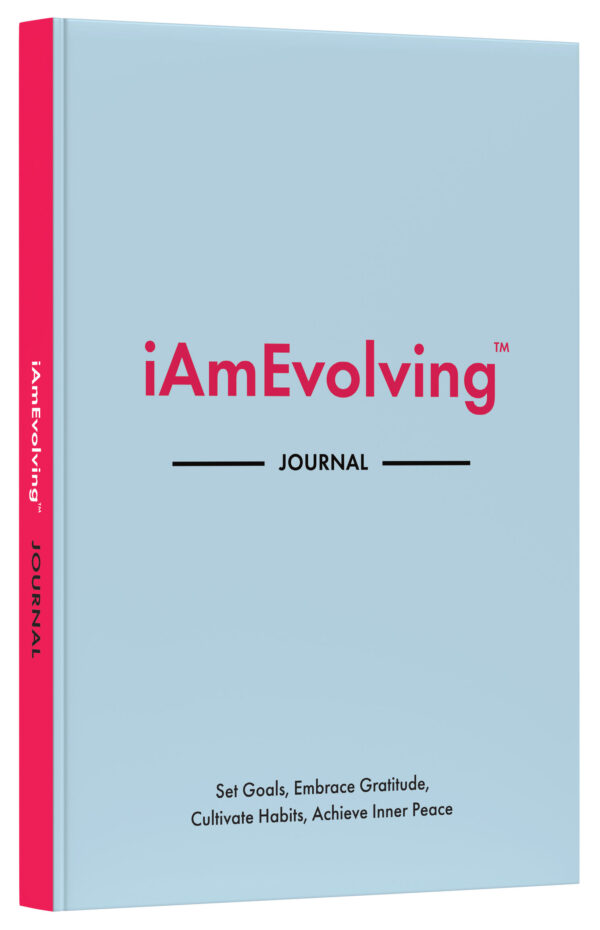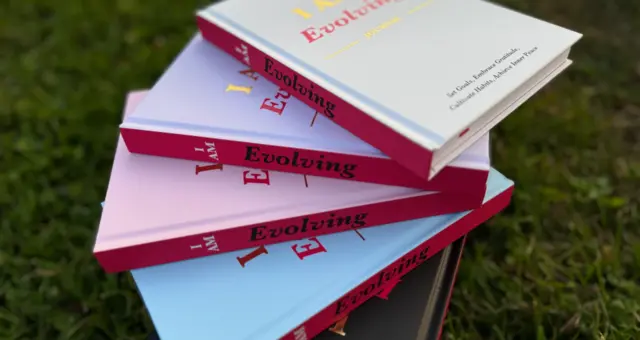Continue shopping
and explore our products below:
The Benefits of Daily Gratitude Journaling (Backed by Science)

Table of Contents

iAmEvolving™ Journal
Set Goals, Embrace Gratitude, Cultivate Habits, Achieve Inner Peace
View JournalGratitude journaling is one of the simplest habits you can build, but it’s also one of the most powerful. Taking just a few minutes each day to reflect on what you appreciate can shift your mindset, boost your mental health, and change how you see your life. Over time, this daily practice rewires your thoughts, helping you focus more on the good and less on the negative.
If you’ve ever wondered why gratitude journaling works or how it can create real change, this post will walk you through the key benefits and show you how to make it part of your everyday routine.
Gratitude Journaling Rewires Your Brain
One of the most powerful benefits of gratitude journaling is its impact on the brain. Neuroscientific research shows that regularly focusing on what you’re grateful for can increase activity in the prefrontal cortex — the part of the brain linked to decision-making, emotional regulation, and positive thinking.
Over time, this practice literally retrains your brain to look for the good. Instead of automatically focusing on what’s missing or stressful, you start noticing opportunities, acts of kindness, and small daily joys. This shift isn’t forced — it becomes your new baseline.
It Supports Emotional Balance and Resilience
Life will always bring challenges, but how you interpret those challenges makes a huge difference. Gratitude journaling acts as a daily emotional anchor, helping you stay steady even when life feels unpredictable. By writing down what you appreciate — especially on difficult days — you remind yourself of what’s stable and meaningful.
This simple habit softens the intensity of negative emotions and builds your ability to handle stress. Many people notice that after just a few weeks of consistent journaling, they feel less reactive and more grounded when setbacks arise. Gratitude doesn’t remove challenges, but it changes how you meet them.
It Reduces Stress and Boosts Overall Well-Being
Research shows that daily gratitude journaling can have real physical and emotional benefits. Multiple studies have found that people who keep a regular gratitude practice tend to have lower levels of cortisol — the body’s main stress hormone. When you take a few minutes each day to focus on the positive, you send a calming signal to your nervous system. This gentle shift helps move your body out of fight-or-flight mode and into a more relaxed state.
The benefits don’t stop there. Gratitude journaling is also linked to better sleep, improved mood, and a greater sense of contentment. Over time, these effects build on each other, making it one of the simplest and most powerful self-care habits you can develop.
It Strengthens Relationships and Social Connection
Gratitude journaling doesn’t just change how you feel — it changes how you connect with others. When you regularly reflect on the people and moments that enrich your life, you naturally become more appreciative and expressive toward them. Over time, this shift affects the way you speak, act, and show up in your relationships.
This creates a powerful positive feedback loop: you feel closer to others, they feel seen and valued, and your bonds grow stronger. Whether you’re writing about a friend’s kindness or acknowledging your partner’s support, daily gratitude journaling helps nurture deeper, more genuine connections with the people who matter most.
Why Daily Practice Matters
Like any meaningful habit, the true power of gratitude journaling lies in consistency. A single entry can brighten your mood for the day, but it’s the daily practice that reshapes your mindset over time. Think of it like training a muscle: the more often you exercise gratitude, the stronger and more natural it becomes.
Even on the days when you feel tired, distracted, or uninspired, writing down just one small thing you’re grateful for keeps the momentum going. These moments of reflection, no matter how brief, build upon each other. Over time, this steady commitment has a way of transforming not just how you think—but how you experience and live your life.
How to Get Started
You don’t need elaborate rituals to begin. Start by writing down three things you’re grateful for each day — big or small. You can do this in the morning to set a positive tone or in the evening to reflect on your day. What matters is that you do it consistently.
If you want more structure, using a guided gratitude journal can make the practice even more impactful. These journals offer prompts and layouts that keep you inspired and focused, making it easier to build the habit over time.
Read: The Best Gratitude Journals to Inspire Your Daily Practice (2025 Guide)
The iAmEvolving Journal — Your Daily Anchor for Gratitude and Growth
The iAmEvolving Journal was designed to make daily reflection natural and effective. With dedicated sections for gratitude, goals, habits, and inner reflection, it gives you a simple structure that keeps you consistent — even on busy days.
By combining gratitude with intentional goal-setting and mindful reflection, this journal helps you stay emotionally balanced and focused on what truly matters. Over time, the daily practice becomes more than just writing — it becomes a way of living with clarity and appreciation.


